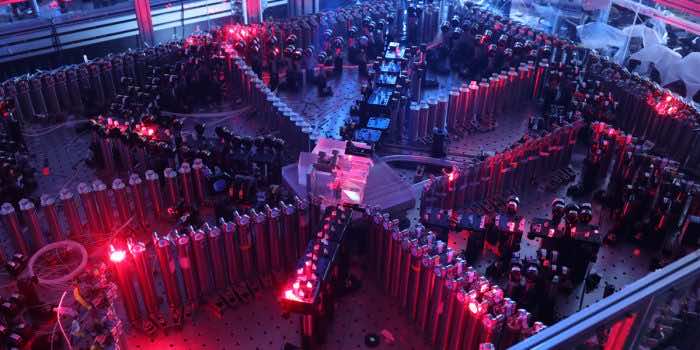Chinese scientists claim that their quantum computer is better at performance than the former record bearer, Google.
Jian-Wei Pan at the University of Science and Technology of China and his colleagues say their quantum computer has solved a problem in just 70 minutes that would take the world’s most powerful supercomputer eight years to crack and may yet be capable of exponentially higher performance.

In a preprint uploaded to arXiv, the researchers claim their quantum computer could solve a problem using 56 out of its 66 qubits, the quantum equivalent of bits in a conventional computer breaking the top-notch corp Google’s record.
Google was the first one to level up its game and gained quantum supremacy. With its 54-qubit Sycamore processor, the company claimed to solve the problems which conventional computers could not. For example, its fast processor Sycamore completed a calculation in 200 seconds that would have taken 10,000 years on the world’s most powerful computer.
Zuchongzhi is the quantum processor used by Jian-Wei Pan and his team of researchers to out-strip Google. This 2D programmable quantum computer can control 66 qubits at once, which means it has the ability to encode quantum information across 66 quantum bits.

It is further expected that this powerful quantum computer may be capable of even higher functioning.
“We estimate that the sampling task finished by Zuchongzhi in about 1.2 hours [or 70 minutes] will take the most powerful supercomputer at least eight years,” the researchers wrote in the paper. “The computational cost of the classical simulation of this task is estimated to be 2-3 orders of magnitude higher than the previous work on 53-qubit Sycamore processor.”
According to researchers, the problem the computer was solving was about 100 times trickier than the one solved by Google’s Sycamore.

“Our work establishes an unambiguous quantum computational advantage that is infeasible for classical computation in a reasonable amount of time. The high-precision and programmable quantum computing platform opens a new door to explore novel many-body phenomena and implement complex quantum algorithms.” It gives us a strong hint of what technology could soon be capable of, and a sneak peek into the next generation of quantum computing advancements. This latest paper, however, is yet to be peer-reviewed.


